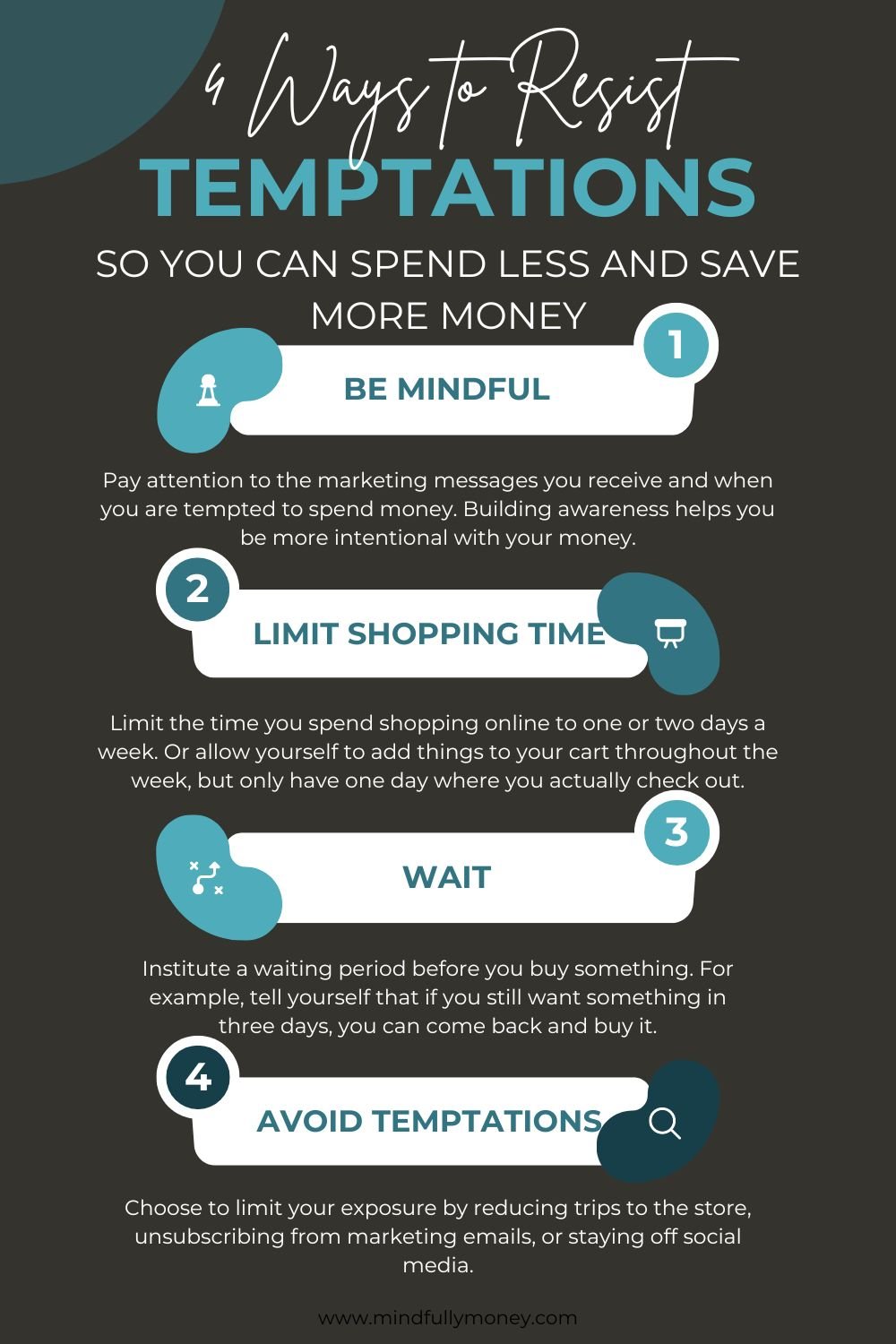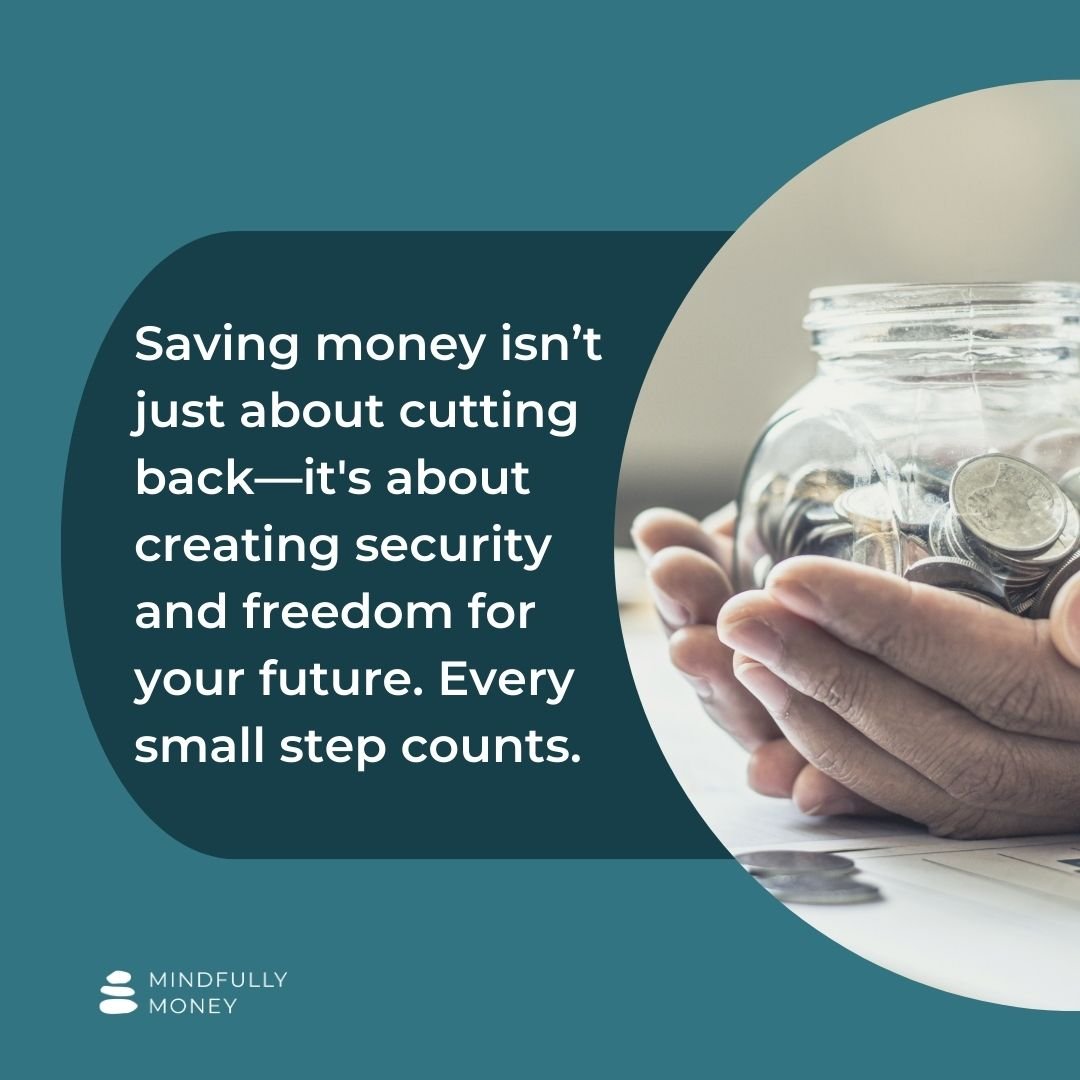Why Is It So Hard to Save Money?
Discover Why Saving Money is So Hard and What You Can Do About It.
Saving money is a challenge that many people struggle with, often leaving them wondering, "Why is it so hard to save money?" Depending on who you ask, somewhere between 70-80% of Americans report living paycheck to paycheck, which means there’s often little to nothing left to save at the end of the month. In fact, 1 in 3 Americans have more credit card debt than emergency savings, which further complicates their ability to save.
Saving money sounds simple enough—just spend less than you earn and stash the difference away for a rainy day. Yet, if it were truly that easy, more of us would be doing it without a second thought. The reality is that saving money is hard, and it’s not just about willpower or discipline. It’s about navigating both external circumstances and psychological factors that can make saving feel like an uphill battle.
Let’s be honest: we live in a world where financial stability can feel out of reach for many, no matter how hard they try. The cost of living keeps rising, wages don’t always keep pace, and unexpected expenses have a way of showing up at the worst possible times. These external factors are real, and they can make saving money seem like a distant dream. But even beyond these circumstances, there are internal challenges—our own thoughts, habits, and emotions—that can sabotage our best intentions.
In this guide, we’re going to explore both sides of the equation. First, we’ll take a look at the external reasons that are beyond your control, the realities of the world we live in that can make saving difficult. Then, we’ll dive into the psychological reasons—those sneaky mindsets and behaviors that can trip you up even when you know better. By understanding these factors, you’ll be better equipped to overcome the obstacles in your path and start making meaningful progress toward your financial goals.
External Reasons Why Saving Money Is So Hard (It’s Not Your Fault)
1. Life is More Expensive
The obvious answer to why it’s so hard to save money is that life is more expensive. According to Bankrate.com, 63% of Americans say that inflation is causing them to save less. And it’s true—everything from groceries to cars to home insurance cost more than they did five years ago.
The cost of everything seems to go up every year—housing, groceries, healthcare, you name it. When the basics eat up a large chunk of your income, there’s little left to save. This isn’t a failure on your part; it’s the reality of living in a time when everything from housing to groceries to child care costs a lot. Acknowledging this doesn’t mean giving up on saving, but it does mean we need to be realistic about what’s possible.
2. Incomes Haven’t Kept Up
Wages have been rising, but not quite enough to keep up with inflation. And despite average increases, not everyone benefits from wage growth equally. In addition, the rising cost of health insurance and other employee benefits mean that it often doesn’t feel like you’re getting more money.
While you can attempt to change jobs, get an extra job, or ask for a raise, this is also a systemic issue that affects millions of people. Understanding that this isn’t something you can directly control helps shift the focus to what you can do within these constraints.
3. Life is Messy
Life is full of surprises, and unfortunately, not all of them are good. Car repairs, medical bills, or even a sudden job loss can derail your savings plans in an instant. These unexpected expenses are beyond your control and can make it feel like you’re always playing catch-up. While you may not be able to anticipate everything that comes your way, you can do your best to be prepared for surprises by saving money just for the unexpected.
4. The World Is Full of Uncertainty
We live in a time of economic uncertainty. Whether it’s a global pandemic, market volatility, or inflation, these factors can create a lot of stress around money. When the future feels uncertain, it can be hard to prioritize saving, especially when you’re focused on just getting by. But saving money, even a small amount at a time, will increase your sense of security and help you feel more in control of life.
5. Not Everyone Has Equal Opportunity
While we’ve made progress in terms of making discrimination illegal, the reality is that it still happens and the effects of discriminatory policies in the past linger. The average wealth of a white family is over $1 million more than the average wealth of a Black or Hispanic family. Women continue to earn less than their male counterparts and are more likely to be pushed into lower-paying jobs or be underemployed due to childcare and home responsibilities.
The reality is that inequalities of many kinds still exist, making it even harder for many people to save money. We can all work to educate ourselves and advocate for better policies.
6. We Never Learned How to Manage Money
Research has shown that we establish our beliefs about money as young children by watching and listening to our parents and caregivers. And that could be good or bad. But usually, it means that nobody ever sat down and actively talked to us about how to go about saving money.
Our parents were doing the best they could with the information they had available at the time, but most of them didn’t really know how to teach us about money. They most likely passed down money beliefs and habits from their parents.
On top of it, most of us didn’t have any financial education in school or elsewhere.
So if you find it hard to save money, be gentle with yourself. It’s not your fault if you never learned how to have a healthy relationship with money.
Taking Action Anyway
It’s crucial to acknowledge these external factors, but it’s equally important not to let them define your financial future. While you can’t control the economy or the cost of living, you can control how you respond. That might mean adjusting your expectations, finding creative ways to cut costs, or even just being kind to yourself during tough times. Remember, the goal isn’t perfection—it’s progress. Every little bit you manage to save, despite these challenges, is a win worth celebrating.
Psychological Factors That Make Saving Money Hard
While external factors like the cost of living and unexpected expenses can make saving money difficult, there are also internal, psychological factors at play. These are the beliefs, habits, and mental roadblocks that can prevent you from saving even when the external circumstances aren't overwhelming. The good news is that, unlike external challenges, these are areas where you have more control. By understanding and addressing these psychological factors, you can start to change your relationship with money and make saving a more natural part of your life.
Here are some of the common psychological barriers to saving—and how you can overcome them.
1. It's too easy to spend money
Credit cards and electronic payments are incredibly convenient. You no longer have to go to the bank to get cash or take the time to write out a check. You can save your credit card information online and check out with the click of a button or a tap of your phone.
In fact, companies know that the easier it is to spend, the more likely you are to do it. They actively design their checkout processes to remove steps.
Related Article: Want to Stop Yourself From Spending Money? Beware of These Marketing Tricks
This means that the process is designed to reduce any pain you might feel when paying for things.
What to do about it:
If you want to save more money, one strategy is to make it harder and more painful to buy things.
Think about it—using cash or writing a check feels a lot more real (and painful) than swiping a credit card. There is some indication that people spend more money when they use credit cards because there is a delay from when you swipe your card to when you actually lose the money when you pay the credit card bill.
How to make it harder and more painful to buy things:
Use cash or write checks
Don’t save your credit cards when shopping online (and delete the information if you already have)
Don’t put subscriptions and memberships on auto-renew
Remove store apps from your phone
Commit to only shopping online from your computer (not your phone or watch) or only going to stores.
Keep your savings in a separate bank than your checking account. Move more money to savings so that you don’t see it and aren’t as tempted to spend it.
2. Everything is available all the time and temptations are everywhere
We are constantly bombarded with well-targeted marketing messages all day every day. Google and Meta almost know us better than we know ourselves at this point. Marketers are masters of appealing to our emotions.
Even without paid advertising, we are exposed to constant images and videos on social media showing us all of the things other people have. Influencers tell us about all of the things “we have to have” that will “change our lives.”
You don’t even have to click over to the store for many of these things anymore—you can buy them right in the app.
It’s a far cry from the days when you had to drive to individual stores. Where it might have taken a day to go shopping for a few things, now you can have everything and anything you want within a few minutes, without having to get dressed or leave your home.
Pin this image to Pinterest!
What to do about it
Practice being more mindful. Start noticing all of the messages and advertising you are exposed to. Pay attention to how they suck you in. Being aware helps you take some of their power away and puts you back in control.
Limit time shopping online. Consider choosing one time per week to do all of your online shopping. You can still add things to cart throughout the week, but choose one time where you actually check out.
Give yourself a time delay. Don’t buy anything the moment you see it. Give yourself a waiting period of a few days to see if you still want it. This takes some of the emotions and excitement out of purchasing something. And you never know when you might just forget about it.
Unsubscribe from marketing emails.
Identify times when you are more likely to spend more money (like when you go to the grocery store hungry) and choose to shop at other times when you have more control.
3. We’re programmed to focus on the present
Human brains are wired to focus on immediate needs rather than future needs. In behavioral economics, this is known as present bias.
Imagine that you come home from work and are trying to decide if you should go for a run or pour yourself a glass of wine and turn on Netflix.
If you choose the wine and Netflix, the benefit is immediate—you get relaxation and entertainment.
But with the run, the benefits are in the future. You know that it is good for your overall, long-term health. And even if you feel good after you come back, you’ve still gone through the annoyance of having to put on the right clothes, find your shoes, and then actually go for the run. (Assuming you’re not one of those people who love every single moment of running all the time.)
The same is true with saving money. The benefit of having savings comes in the future when you get to spend the money.
But spending the money in the moment provides you with immediate satisfaction—you get the joy of having whatever it is you want.
Our brains are programmed to prefer this immediate benefit. It is much harder to focus on future benefit because it doesn’t feel real yet.
What to do
1. Take away the decision
The primary way to overcome this is to make your savings automatic. Take away the decision. If you don’t have to actively choose between saving and spending, you increase the chance of success when it comes to saving money. Simply don’t give yourself the opportunity to choose.
2. Create a clear vision
One of the reasons why it’s hard to save for the future is that you don’t know what it is you want. You can’t imagine yourself being retired or don’t know exactly what you want to do with the money.
To increase the likelihood of saving, create a very tangible and detailed vision of why you are saving money. Imagine where you want to go on vacation, what you’ll do, where you’ll be, what you’ll see, etc. Thinking about what you want to do in retirement—what your everyday looks like and what special things you want to plan.
The more detail the better.
3. Remind yourself of your goals
If you have a goal to go on a specific vacation, for example, put pictures of that place or activity around your house to remind yourself of the vision. This will help make it more real and keep it in your mind when you make decisions about spending money in the present.
4. Social pressures
You go out to eat with friends and everyone is getting another round of drinks, so you feel like you should too. All your neighbors are too busy to mow their own lawns and regularly make comments about you doing it yourself. Everyone else you know is sending their kids to private school and you don’t want to be the only one who isn’t “giving your kids the best opportunities.”
The pressure to spend money and keep up with the Joneses is real. Humans are social and it is completely natural to feel the pressure to spend money to socialize and be part of your social circles.
This isn’t necessarily bad. You should absolutely be able to spend money on lawn services and private school if that’s what you feel is important.
But it can also be problematic and cause you to spend more than you can afford. You know it’s a problem if you’re in debt and/or not able to save a sufficient amount for emergencies, surprises, and retirement.
What to do
1. Recognize that you don’t always know someone else’s situation.
That family where everyone has new iPhones and Apple watches? They might be in debt and have nothing in savings.
That family that went on that amazing vacation to Hawaii? They might have scrimped and saved for years so they could spend big this one time.
The couple who bought the big fancy home in the nice neighborhood? They might have been made partner or had help from their parents.
You can’t compare yourself to others because they are not you and their circumstances are not your circumstances.
2. Get clear on what is important to you.
Stop trying to buy all of the things because you think that’s what you’re supposed to do at this stage of life. The reality is that you’re never going to be able to buy everything you want whenever you want it. (No, not even if you’re a famous movie star or you win the lottery).
Figure out what is most important to you. Set goals around spending money on those things and cut back on the rest so that you can make your goals happen.
3. Get better at not caring what other people think.
It’s hard, I know. We ALL struggle with this. And sure, sometimes it’s good to care what other people think.
But it’s not good when you’re spending money because you feel like you have to even if you don’t really want to.
Practice saying no and reminding yourself that if someone has a problem with you not ordering a third drink, it’s their problem, not yours.
Read More: How to Stop Comparing Yourself to Others
Saving money is often easier said than done, and it's important to recognize that the challenges you face are real and valid. Between rising living costs, unpredictable expenses, and the psychological hurdles we've discussed, it's no wonder so many people struggle to build their savings. But understanding these challenges is the first step toward overcoming them.
By acknowledging the external factors that make saving difficult, you can begin to approach your finances with more compassion and less self-blame. And by recognizing the psychological barriers that might be holding you back, you can start to take actionable steps to change your mindset and habits.
Remember, saving money isn't just about cutting back or denying yourself—it's about creating a sense of security, freedom, and opportunity for your future. It might not be easy, but with awareness and a plan, you can start to take control of your finances and build the life you want.
You're not alone in this journey, and every small step you take towards saving is a step towards a more stable and fulfilling future. Whether you're just starting out or looking to improve your current habits, know that you have the power to make a difference in your financial life. The challenges are real, but so is your ability to overcome them.
Ready to take control of your finances? Start today by downloading our free expense tracker to help you build awareness of your spending and join our newsletter for more tips and insights on saving money and achieving your financial goals.


















